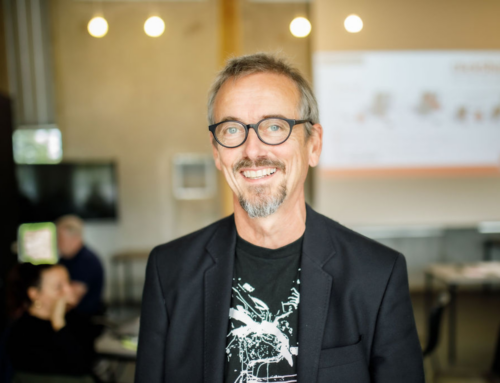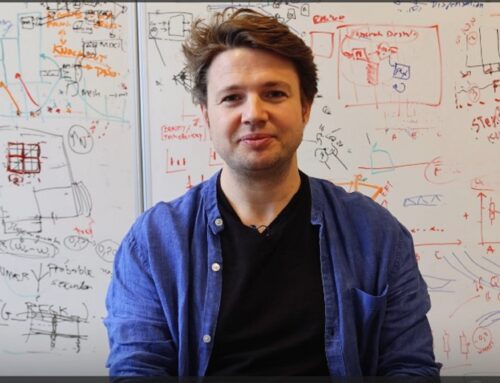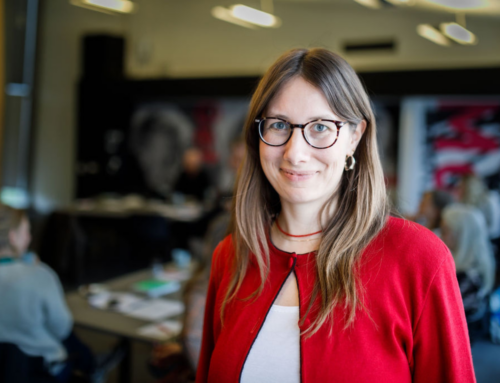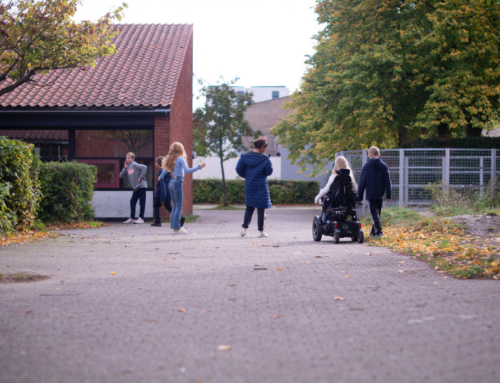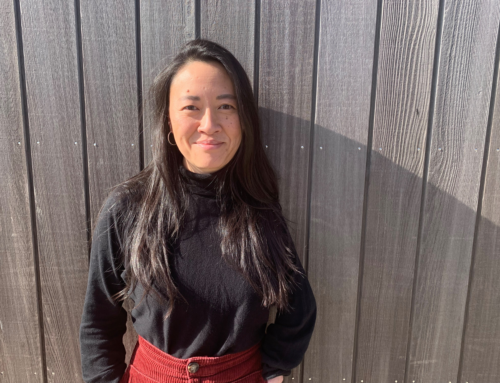
Universities must anticipate and welcome neurodivergent students
With a more inclusive computer science education, the technologists of the future will better reflect a wider range of users. But many students with disabilities stumble over accessibility issues due to structural barriers. We can all play a role in creating an inclusive and accessible tech education, computer science PhD fellow Valeria Borsotti thinks.
by Thomas Bjerg
A programming student with dyslexia gets a lower grade in an oral exam because she cannot use a spellchecker – the assignment is to manually write code on a whiteboard. Another student with autism waits a whole semester before having access to the accommodations she has been granted.
Computer science researcher Valeria Borsotti has interviewed 18 neurodivergent students at three Danish computer science departments. Neurodiversity is an umbrella term for the neurobiological diversity of all people, and the term is often used in context with ADHD, autism, dyslexia, bipolar disorder, and other diagnoses – if there is a diagnosis at all. In her PhD thesis, Valeria is exploring accessibility and inclusivity in computer science education.
“The Danish formal system of disability support in education is a good start – students who need it can request mentors, support teachers and assistive technology for instance, but it’s clearly not enough. The universities don’t focus much on the accessibility needs of students. In my research is also very clear that the path to request and receive accommodations is laborious”.
Valeria has colleagues in the United States who get an email from the university administration about accessibility needs before the semester starts. In that way they can consider the needs of all students when they plan their lectures.
“They have a more streamlined way of working and more focus on accessibility. Disability services at many American universities don’t just support the students but also the teachers. The US has a more advanced system of regulations in place to ensure the rights of people with disabilities, the ADA (Americans with Disabilities Act).”
You need a diagnosis to get equal access
In Denmark, the student must disclose a diagnosis to get so called “special support” – in other words to have access to accommodations that are designed to provide an equitable experience.
“You can only apply for support after you are enrolled, and there is a delay, in some cases up to six months. Without a diagnosis, like ADHD or autism for instance, you don’t get the support. Many students with disabilities don’t have a diagnosis or might be diagnosed during their studies,” says Valeria Borsotti stating that many women are under-diagnosed or diagnosed later compared to men, particularly in the case of autism or ADHD.
She cites a report from The Danish Agency for Education and Research saying that 30.000 or 11 percent of the students in higher education in 2020 have a registered impairment.
In Denmark, the support is given by SPS – Specialpædagogisk Støtte (Special Educational Support) – and each university has an office. But the SPS is organized under the Ministry of Children and Education, whereas the universities are run by the Ministry of Higher Education and Science.
“The two systems don’t always work well together, and the administration and the teachers don’t know much about the support available. It is quite siloed. When the student must ask individually for accommodations, the universities don’t necessarily have to make any structural changes. Students must adapt to a system that was not designed for them.”
Another approach: Universal Design for Learning and addressing structural barriers
Valeria Borsotti calls for a different approach like the Universal Design for Learning guidelines from the US-based Center for Applied Technology.
“When you design your education and lectures you should want to anticipate the broadest range of needs and bodies. Not only in the classroom. During exams, students might be denied access to assistive technology or tools, often as a result of preventable barriers. In some cases, the board of studies denies accommodations during exams because they fear students might cheat. There is a widespread lack of literacy around disability.”
Valeria Borsotti also points out that teachers should consider that students learn differently.
“It is also about presenting content in different ways, to engage people differently. Video lectures are among the most useful tools available according to all the students I have interviewed. Students experiencing fatigue or having issues related to executive function, like working memory, or focus, can use them to better suit their needs. But not all universities are comfortable introducing video lectures.”
Valeria Borsotti would like to see a profound change at the organizational level.
“We could change our approach. The assumption is that the students need to ask for help and therefore the teachers cannot anticipate their needs. But we could assume for example that a fair amount of the students has dyslexia – it is the most common category for so-called functional impairments at the University of Copenhagen. And then ensure that the screen readers they are assigned can read maths formulas and use a programming environment with color-coding and spell checking. And how about putting accessibility on the computer science curriculum? Now there is very little, if at all, but it is becoming a hot topic, and regulations are changing fast.”
Students try to create change
Nevertheless, Valeria Borsotti sees some change coming from the bottom up.
“Students with disabilities are trying to create change, they want to improve access for everyone. One student with a chronic illness helped officers create better social guidelines. She told them to be mindful of alternative social activities for people with needs related to fatigue or pain.”
Another student provided research-based advice on how the teachers could structure programming education for students with dyslexia.
Valeria Borsotti
PhD Fellow & Chair for Diversity at Department of Computer Science, Human Centred-Computing, University of Copenhagen
Master in Anthropology, University of Copenhagen 2011
Has worked with social inclusion and gender equity in computer science education for IT-Universitetet from 2014-20
Co-authored with Pernille Bjørn and Maria Blanco Menendez the book Diversity in Computer Science which is open access
Member of the Bevica Foundation’s research network
Read more research profiles
